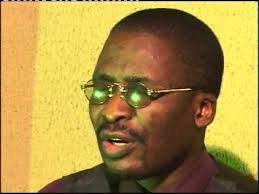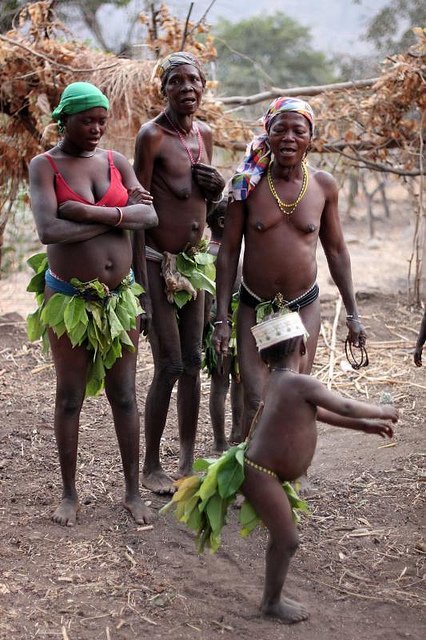Kidjo was born in Ouidah, French Dahomey, in what is now Benin. Her father is from the Fon people of Ouidah and her mother from the Yoruba people in Nigeria. She grew up listening to Yoruba and Beninese traditional music, Miriam Makeba, Hugh Masekela, James Brown, Manu Dibango, Otis Redding, Jimi Hendrix, Fela Kuti, Stevie Wonder, Osibisa, and Santana. By the time she was six, Kidjo was performing with her mother's theatre troupe, giving her an early appreciation for traditional music and dance.
She started singing in her school band, Les Sphinx, and found success as a teenager with her adaptation of Miriam Makeba's "Les Trois Z", which was played on national radio. Kidjo recorded the album Pretty with the Cameroonian producer Ekambi Brilliant and her brother Oscar. It featured the songs "Ninive", "Gbe Agossi" and a tribute to the singer Bella Bellow, one of her role models. The success of the album allowed her to tour all over West Africa. Continuing political conflicts in Benin prevented her from being an independent artist in her own country and led her to relocate to Paris in 1983.
Kidjo was born into a family of performing artists. Her father was a musician, and her mother worked as a choreographer and theatre director
She stated during her interview with Smooth FM in Lagos State that her lineage is also from Iseyin, Oyo State, Nigeria.
Kidjo stated that her mother told her of her background as a growing up child, that she is a citizen of Nigeria.
The singer who was born in the Benin Republic claimed that she has lots of relatives in Nigeria even though she doesn’t visit them often.
Kidjo said, “My Mum told me that I am from Iseyin because when my grandfather’s great great great great father came back from Brazil, they found their roots in Iseyin.
“From my mother’s mother’s side, we have always been from Nigeria. So we have families in Abeokuta. Ibadan, Lagos, everywhere, I have cousins I haven’t seen a million years that I miss a lot.”
While working various day jobs to pay for her tuition, Kidjo studied music at the CIM, a reputable jazz school in Paris where she met musician and producer Jean Hebrail, with whom she has composed most of her music and whom she married in 1987. She started out as a backup singer in local bands. In 1985, she became the front singer of Jasper van 't Hof's Euro-African jazz/rock band Pili Pili. Three Pili Pili studio albums followed: Jakko (1987), Be In Two Minds (1988, produced by Marlon Klein) and Hotel Babo (1990). By the end of the 1980s, she had become one of the most popular live performers in Paris and recorded a solo album called Parakou for the Open Jazz Label. She was then 'discovered' in Paris by Island Records founder Chris Blackwell, who signed her in 1991. She recorded four albums for Island until Blackwell's departure from the label. In 2000 she was signed in New York by Columbia Records, for whom she recorded two albums.
Kidjo has been a UNICEF Goodwill Ambassador since 2002. With UNICEF, she has travelled to many countries in Africa.
Growing up, Kidjo was one of the few girls in Benin to receive an education. She invented the word "Batonga" as a joyfully defiant response to those who told her that girls did not belong in the classroom. Later, it would become the title of a hit song for the Grammy-winning singer/songwriter and the name of her non-profit organization.
In 2006, Kidjo founded the Batonga Foundation with the goal of empowering and educating adolescent girls in sub-Saharan Africa. Batonga has since provided girls in five African countries (Mali, Benin, Sierra Leone, Ethiopia, and Cameroon) with 5,000 academic years of education through scholarships and in-kind support, supplied 8,727 students access to wells and latrines across 7 schools in Benin, and offered 222,000 students in Benin's poorest regions TOMS shoes for the walk to school.
On September 15, 2021, Time included her in their list of the 100 most influential people in the world. In 2010, the BBC Focus on Africa magazine included Kidjo in its list of the African continent's 50 most iconic figures, based on reader votes. and in 2020 she was on the list of the BBC's 100 Women announced on 23 November 2020. In 2011, The Guardian listed her as one of its Top 100 Women in art, film, music and fashion and Kidjo is the first woman to be listed among "The 40 Most Powerful Celebrities in Africa" by Forbes magazine
A Legend ✨
Source: Wikipedia, Vanguard.








0 Comments